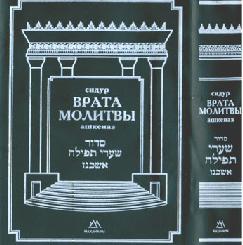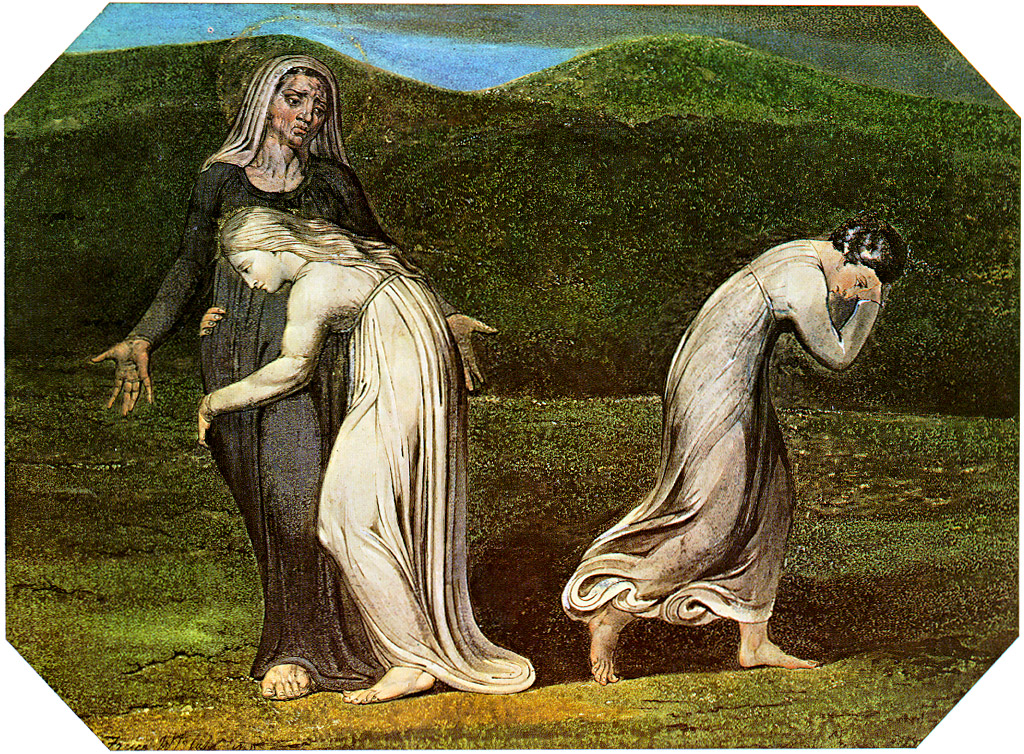|
Machanaim
Machanaim is an organization dealing with the spiritual absorption of Jewish people from the former USSR in Israel. The movement's work and its goals spawned its name, the Hebrew word from {{bibleverse, , Genesis, 32:3, HE meaning "two camps", in this case referring to Jerusalem and Moscow. Machanaim's founders are Rabbi Dr. Zeev Dashevsky, Dr. Pinchas Polonsky, and Dr. Michael Kara-Ivanov. Machanaim began in Moscow behind the Iron Curtain in 1979, during the period of Brezhnev stagnation, as a group of young people who gathered to study Jewish history and tradition and pass on this knowledge on to their fellow Jews. Over time it developed into an organized underground network for studying Torah, Jewish philosophy, and Jewish law. Almost all the group members were refuseniks. Classes were sometimes interrupted by the KGB. In 1987 most of the Machanaim activists received permission to emigrate to Israel. There they set two main goals: to work with new immigrants and to ... [...More Info...] [...Related Items...] OR: [Wikipedia] [Google] [Baidu] |
Pinchas Polonsky
Pinchas Polonsky (russian: Полонский Пётр (Пинхас) Ефимович, born 11 February 1958) is a Russian-Israeli Jewish-religious philosopher, researcher, and educator active among the Russian-speaking Jewish community. He has written original books and a number of translations of works on Judaism. During his underground activities in Moscow (1977–1987), he taught Judaism and was one of the founders of Machanaim. He lives in Israel, is an activist in the process of the modernization of Judaism and is a researcher on the topics of the late Rav Kook. Polonsky is the author of a commentary on the Torah under the title "Bible Dynamics". Dr. Polonsky initiated EJWiki, an academic encyclopedia on Jewish and Israeli topics. Biography Born 1958 in Moscow into a family of secular assimilated Jews,«Восемнадцать», составитель З. Вагнер, издательство «Шамир», Иерусалим, 1989, с. 202—217 he attended Special ... [...More Info...] [...Related Items...] OR: [Wikipedia] [Google] [Baidu] |
Ma'aleh Adumim
Ma'ale Adumim ( he, מַעֲלֵה אֲדֻמִּים; ar, معالي أدوميم) is an urban Israeli settlement organized as a city council in the West Bank, seven kilometers () east of Jerusalem. Ma'ale Adumim achieved city status in 1991. In 2015 its population was . It is located along Highway 1, which connects it to Jerusalem and the Tel Aviv Metropolitan Area. The international community considers Israeli settlements in the West Bank illegal under international law, but the Israeli government disputes this. Etymology The town name "Ma'ale Adumim" is taken from two mentions made of an area marking the boundaries between two Israelite tribes in the Book of Joshua. At , in a passage on the inheritance of the Tribe of Judah, it is stated that from the Stone of Bohan the border went up to Debir from the Valley of Achor, turning north to Gilgal, which faces the Ascent of Adummim south of the ravine. At , in a description of the inheritance by the casting of lots that ... [...More Info...] [...Related Items...] OR: [Wikipedia] [Google] [Baidu] |
Machanayim
Machanayim (, also spelled Machanaim) is a game similar to dodgeball that is frequently played in North American Jewish schools and summer camps. The name Machanayim comes from the Hebrew word meaning "two encampments" or, in this case, two teams. Rules Game Play: Players are divided into two encampments and the room is split in two with the teams facing each other. The playing area does not extend all the way to the back of the room or court - the two far ends are left empty, and one volunteer, typically one of the better players, from each team is placed behind the opposing team. This player is called "the captain". A ball is thrown into play at the start, although it is not activated (see below). The game is similar to Dodgeball, in that players try and throw the ball at opponents. When a player is hit, they are out. The difference between Machanayim and Dodgeball is that when a player is out in Machanayim, they are still part of the game. Rather than leaving the court, th ... [...More Info...] [...Related Items...] OR: [Wikipedia] [Google] [Baidu] |
Jewish Law
''Halakha'' (; he, הֲלָכָה, ), also Romanization of Hebrew, transliterated as ''halacha'', ''halakhah'', and ''halocho'' ( ), is the collective body of Judaism, Jewish religious laws which is derived from the Torah, written and Oral Torah. Halakha is based on biblical commandments (''Mitzvah, mitzvot''), subsequent Talmudic and Mitzvah#Rabbinic mitzvot, rabbinic laws, and the customs and traditions which were compiled in the many books such as the ''Shulchan Aruch''. ''Halakha'' is often translated as "Jewish law", although a more literal translation of it might be "the way to behave" or "the way of walking". The word is derived from the Semitic root, root which means "to behave" (also "to go" or "to walk"). ''Halakha'' not only guides religious practices and beliefs, it also guides numerous aspects of day-to-day life. Historically, in the Jewish diaspora, ''halakha'' served many Jewish communities as an enforceable avenue of law – both Civil law (legal system), civil a ... [...More Info...] [...Related Items...] OR: [Wikipedia] [Google] [Baidu] |
Jews And Judaism In The Soviet Union
Jews ( he, יְהוּדִים, , ) or Jewish people are an ethnoreligious group and nation originating from the Israelites Israelite origins and kingdom: "The first act in the long drama of Jewish history is the age of the Israelites""The people of the Kingdom of Israel and the ethnic and religious group known as the Jewish people that descended from them have been subjected to a number of forced migrations in their history" and Hebrews of historical Israel and Judah. Jewish ethnicity, nationhood, and religion are strongly interrelated, "Historically, the religious and ethnic dimensions of Jewish identity have been closely interwoven. In fact, so closely bound are they, that the traditional Jewish lexicon hardly distinguishes between the two concepts. Jewish religious practice, by definition, was observed exclusively by the Jewish people, and notions of Jewish peoplehood, nation, and community were suffused with faith in the Jewish God, the practice of Jewish (religious) la ... [...More Info...] [...Related Items...] OR: [Wikipedia] [Google] [Baidu] |
Jewish Outreach
Jewish outreach is a term sometimes used to translate the Hebrew word ''kiruv'' or ''keruv'' (literally, "to draw close" or "in-reach"). Normative Judaism forbids seeking converts to Judaism from other religions, although all denominations do accept those who follow through their conversion with a sincere commitment. Outreach efforts are instead directed at Jews who have "gone astray", or who have been born Jewish in a non-observant family. Background and contemporary views The idea of "Jewish outreach" has mixed support among Jews; some are against the concept, while others share a vision of a more accessible and inclusive Jewish community. In the United States, a country with a mostly non-Orthodox or unaffiliated Jewish population and a 50% intermarriage rate, some Jewish federations and educational organizations provide an extensive range of offerings to the intermarried, to those who are marginally engaged with Jewish life, and to those who haven’t had any involvement in ... [...More Info...] [...Related Items...] OR: [Wikipedia] [Google] [Baidu] |
Religious Zionism
Religious Zionism ( he, צִיּוֹנוּת דָּתִית, Romanization of Hebrew, translit. ''Tziyonut Datit'') is an ideology that combines Zionism and Orthodox Judaism. Its adherents are also referred to as ''Dati Leumi'' ( "National Religious"), and in Israel, they are most commonly known by the plural form of the first part of that term Datiim ( "Religious"). The community is sometimes called ''Kippah seruga'', literally, "Knitted kippah", the typical head covering which is worn by Jews, Jewish men. Before the establishment of the State of Israel, most Religious Zionists were observant Jews who supported Zionist efforts to build a Jewish state in the Land of Israel. Religious Zionism revolves around three pillars: the Land of Israel, the People of Israel, and the Torah of Israel. The Hardal ( ''Ḥaredi Le'umi''; lit., "Nationalist Haredi") are a sub-community, stricter in its observance, and more statist in its politics. Those Religious Zionists, who are less strict in the ... [...More Info...] [...Related Items...] OR: [Wikipedia] [Google] [Baidu] |
Synagogue
A synagogue, ', 'house of assembly', or ', "house of prayer"; Yiddish: ''shul'', Ladino: or ' (from synagogue); or ', "community". sometimes referred to as shul, and interchangeably used with the word temple, is a Jewish house of worship. Synagogues have a place for prayer (the main sanctuary and sometimes smaller chapels), where Jews attend religious Services or special ceremonies (including Weddings, Bar Mitzvahs or Bat Mitzvahs, Confirmations, choir performances, or even children's plays), have rooms for study, social hall(s), administrative and charitable offices, classrooms for religious school and Hebrew school, sometimes Jewish preschools, and often have many places to sit and congregate; display commemorative, historic, or modern artwork throughout; and sometimes have items of some Jewish historical significance or history about the Synagogue itself, on display. Synagogues are consecrated spaces used for the purpose of Jewish prayer, study, assembly, and r ... [...More Info...] [...Related Items...] OR: [Wikipedia] [Google] [Baidu] |
Judaism
Judaism ( he, ''Yahăḏūṯ'') is an Abrahamic, monotheistic, and ethnic religion comprising the collective religious, cultural, and legal tradition and civilization of the Jewish people. It has its roots as an organized religion in the Middle East during the Bronze Age. Modern Judaism evolved from Yahwism, the religion of ancient Israel and Judah, by the late 6th century BCE, and is thus considered to be one of the oldest monotheistic religions. Judaism is considered by religious Jews to be the expression of the covenant that God established with the Israelites, their ancestors. It encompasses a wide body of texts, practices, theological positions, and forms of organization. The Torah, as it is commonly understood by Jews, is part of the larger text known as the ''Tanakh''. The ''Tanakh'' is also known to secular scholars of religion as the Hebrew Bible, and to Christians as the " Old Testament". The Torah's supplemental oral tradition is represented by later texts s ... [...More Info...] [...Related Items...] OR: [Wikipedia] [Google] [Baidu] |
Conversion To Judaism
Conversion to Judaism ( he, גיור, ''giyur'') is the process by which non-Jews adopt the Jewish religion and become members of the Jewish ethnoreligious community. It thus resembles both conversion to other religions and naturalization. "Thus, by converting to Judaism, the religion, a gentile becomes not only a Judahist—one who practices Judaism—but a jew. Such a one is then part of the Jewish community as much as of the community of Judaism" The procedure and requirements for conversion depend on the sponsoring denomination. Furthermore, a conversion done in accordance with one Jewish denomination is not a guarantee of recognition by another denomination. Normally, though not always, the conversions performed by more stringent denominations are recognized by less stringent ones, but not the other way around. A formal conversion is also sometimes undertaken by individuals whose Jewish ancestry is questioned or uncertain, even if they were raised Jewish, but may not actua ... [...More Info...] [...Related Items...] OR: [Wikipedia] [Google] [Baidu] |
Commonwealth Of Independent States
The Commonwealth of Independent States (CIS) is a regional intergovernmental organization in Eurasia. It was formed following the dissolution of the Soviet Union in 1991. It covers an area of and has an estimated population of 239,796,010. The CIS encourages cooperation in economic, political and military affairs and has certain powers relating to the coordination of trade, finance, lawmaking, and security. It has also promoted cooperation on cross-border crime prevention. As the Soviet Union disintegrated, Belarus, Russia and Ukraine signed the Belovezh Accords on 8 December 1991, declaring that the Union had effectively ceased to exist and proclaimed the CIS in its place. On 21 December, the Alma-Ata Protocol was signed. The Baltic states (Estonia, Latvia and Lithuania), which regard their membership in the Soviet Union as an illegal occupation, chose not to participate. Georgia withdrew its membership in 2008 following the Russo-Georgian War. Ukraine formally ended its ... [...More Info...] [...Related Items...] OR: [Wikipedia] [Google] [Baidu] |




.jpg)


